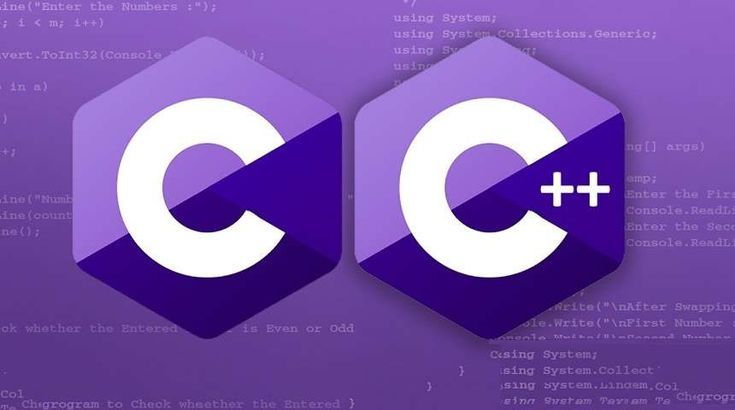Elevate Your C++ Skills with Annas Blog C+ Edition

Introduction
Welcome to the world of C++, a powerful programming language renowned for its performance, versatility, and widespread applicability across various industries. Whether you’re a seasoned developer looking to enhance your skills or a newcomer eager to dive into the realm of programming, Anna’s Blog C+ Edition is your ultimate guide to mastering C++. In this comprehensive article, we’ll explore everything from the fundamentals of C++ to advanced techniques, career opportunities, and invaluable resources for ongoing learning.
Getting Started with C++
Before delving into the intricacies of C++, it’s essential to set up your development environment and familiarize yourself with the basics. Anna’s Blog C+ provides step-by-step guidance on installing necessary tools and IDEs, ensuring you have everything you need to embark on your C++ journey. From there, you’ll learn about C++ syntax, variables, data types, and control flow statements, laying a solid foundation for further exploration.
Understanding the building blocks of C++ is crucial for writing efficient and maintainable code. Anna’s Blog C+ offers comprehensive tutorials and hands-on exercises to help you grasp these concepts effectively. By following along with practical examples and projects, you’ll gain confidence in your ability to write clean, readable code that adheres to best practices.
Exploring Fundamental Concepts
C++ is a rich and complex language, but fear not – Anna’s Blog C+ breaks down the fundamental concepts into digestible chunks. From variables and data types to operators and expressions, you’ll learn how to manipulate data and perform calculations with ease. The blog also covers essential control flow statements, including loops and conditionals, empowering you to write code that responds dynamically to different scenarios.
Understanding these fundamental concepts lays the groundwork for more advanced topics in C++, such as object-oriented programming (OOP), which we’ll explore in the next section. By mastering the basics, you’ll build a solid framework upon which to expand your knowledge and tackle more complex programming challenges.
Functions and Modules
In the world of C++, functions play a crucial role in organizing and modularizing code. Anna’s Blog C+ offers in-depth tutorials on writing and calling functions, understanding function parameters and return types, and structuring your code into cohesive modules. By following Anna’s expert guidance, you’ll learn how to design code that is modular, reusable, and easy to maintain – essential skills for any proficient C++ developer.
One of the key benefits of modular programming is its ability to facilitate code reuse and collaboration. With Anna’s Blog C+, you’ll discover how to create reusable function libraries, share code with other developers, and streamline your development process. Whether you’re working on a small personal project or a large-scale software application, modular programming techniques will help you write cleaner, more efficient code that is easier to manage and maintain.
Object-Oriented Programming (OOP) in C++
Object-oriented programming (OOP) is a paradigm that allows developers to model real-world entities as objects, encapsulating data and behavior within a single unit. Anna’s Blog C+ provides a comprehensive introduction to OOP principles, including classes, objects, inheritance, encapsulation, and polymorphism. By understanding these concepts, you’ll be able to design more robust, flexible, and maintainable software solutions in C++.
At the heart of OOP is the concept of classes and objects. Classes serve as blueprints for creating objects, defining their structure and behavior through member variables and member functions. With Anna’s guidance, you’ll learn how to create and manipulate objects in C++, encapsulating data and behavior within intuitive and reusable components.
Inheritance is another powerful feature of OOP that allows classes to inherit properties and methods from other classes, facilitating code reuse and promoting a hierarchical structure. Anna’s Blog C+ covers inheritance in depth, exploring its various forms and demonstrating how to use it effectively in your C++ projects.
Encapsulation is the practice of bundling data and methods that operate on that data within a single unit, or class. This not only helps organize code but also protects data from unauthorized access and modification. Anna’s Blog C+ teaches you how to leverage encapsulation to design robust and secure software solutions in C++.
Polymorphism is the ability of objects of different types to be treated as objects of a common superclass, enabling dynamic method dispatch and runtime flexibility. Anna’s Blog C+ explains polymorphism in detail, illustrating its practical applications and demonstrating how to implement it in your C++ programs.
By mastering object-oriented programming principles in C++, you’ll be able to design more scalable, maintainable, and extensible software solutions that can adapt to changing requirements and environments.
Advanced C++ Features
Once you’ve mastered the basics of C++ and object-oriented programming, it’s time to explore some of the language’s more advanced features. Anna’s Blog C+ covers a wide range of advanced topics, including templates, exception handling, and memory management, equipping you with the skills and knowledge to tackle complex programming challenges with confidence.
Templates and Generic Programming
Templates are a powerful feature of C++ that allow you to write generic code that can operate on different data types. Anna’s Blog C+ provides detailed tutorials on creating and using templates, demonstrating how they can be used to write flexible and reusable code that adapts to various scenarios.
One of the key benefits of templates is their ability to promote code reuse and eliminate the need for duplicate code. By writing generic algorithms and data structures, you can create versatile components that can be used across different projects and domains. Anna’s Blog C+ shows you how to harness the full power of templates, enabling you to write more efficient, maintainable, and scalable code in C++.
Exception Handling
Exception handling is a critical aspect of modern software development, allowing developers to gracefully handle errors and unexpected conditions that may arise during program execution. Anna’s Blog C+ offers comprehensive tutorials on exception handling in C++, covering topics such as try-catch blocks, throwing and catching exceptions, and designing robust error-handling strategies.
By mastering exception handling techniques, you’ll be able to write more resilient and reliable code that can gracefully recover from errors and prevent unexpected crashes. Anna’s Blog C+ provides practical examples and best practices for handling exceptions effectively, empowering you to write robust and dependable software solutions in C++.
Memory Management
Memory management is a fundamental aspect of programming, particularly in languages like C++ where manual memory allocation and deallocation are common. Anna’s Blog C+ explores memory management in depth, covering topics such as dynamic memory allocation, pointers, memory leaks, and smart pointers.
Understanding how memory is managed in C++ is essential for writing efficient and reliable code. Anna’s Blog C+ provides clear explanations and practical examples to help you master memory management techniques, enabling you to write code that is both fast and reliable.
Best Practices for C++ Development
In addition to mastering the language itself, it’s essential to adopt best practices for C++ development to ensure your code is clean, maintainable, and efficient. Anna’s Blog C+ offers valuable insights into writing clean and readable code, effective use of comments and documentation, and debugging techniques and tools.
Writing Clean and Readable Code
Writing clean and readable code is essential for collaboration, maintenance, and debugging. Anna’s Blog C+ provides practical tips and guidelines for writing clean code that is easy to understand and maintain. By following these best practices, you’ll be able to write code that is more robust, reliable, and scalable, saving time and effort in the long run.
One of the key principles of writing clean code is clarity. Your code should be easy to read and understand at a glance, with clear and descriptive variable names, consistent formatting, and well-structured code blocks. Anna’s Blog C+ offers practical advice on improving code clarity and readability, helping you write code that is not only functional but also elegant and easy to maintain.
Another important aspect of writing clean code is minimizing complexity. Complex code is harder to understand, debug, and maintain, increasing the risk of errors and inefficiencies. Anna’s Blog C+ provides strategies for simplifying and refactoring complex code, making it easier to understand and maintain over time.
Effective use of comments and documentation is essential for conveying your code’s intent and functionality to other developers. Anna’s Blog C+ offers guidelines for writing clear and informative comments that enhance code readability and maintainability. By documenting your code effectively, you’ll make it easier for others to understand and contribute to your projects, fostering collaboration and knowledge sharing.
Debugging Techniques and Tools
No matter how carefully you write your code, bugs are inevitable. Debugging is an essential skill for any programmer, allowing you to identify and fix errors in your code quickly and efficiently. Anna’s Blog C+ covers a wide range of debugging techniques and tools, from simple print statements to advanced debugging utilities.
One of the most basic debugging techniques is using print statements to output information about the program’s state at various points in the code. Anna’s Blog C+ offers tips and tricks for effective debugging with print statements, helping you isolate and diagnose errors more effectively.
In addition to print statements, Anna’s Blog C+ explores more advanced debugging tools and utilities, such as integrated development environment (IDE) debuggers, command-line debuggers, and memory profilers. These tools provide powerful features for inspecting and analyzing your code at runtime, helping you identify and fix errors more efficiently.
By mastering debugging techniques and tools, you’ll be able to diagnose and fix errors in your code more quickly, reducing downtime and improving the overall quality of your software projects. Anna’s Blog C+ provides practical advice and real-world examples to help you become a more effective debugger, empowering you to write more reliable and robust code in C++.
Optimizing Performance
In addition to writing clean and readable code, it’s essential to optimize the performance of your C++ programs to ensure they run as efficiently as possible. Anna’s Blog C+ offers valuable insights into identifying performance bottlenecks, optimizing code efficiency, and leveraging profiling tools to measure and analyze performance.
Identifying Performance Bottlenecks
Performance bottlenecks are areas of your code that are causing slowdowns or inefficiencies, often due to suboptimal algorithms, excessive resource usage, or inefficient code patterns. Anna’s Blog C+ provides practical strategies for identifying and addressing performance bottlenecks, helping you improve the speed and efficiency of your C++ programs.
One common source of performance bottlenecks is inefficient algorithms. Anna’s Blog C+ offers tips and techniques for optimizing algorithms to improve performance, such as using more efficient data structures, reducing unnecessary computations, and minimizing memory overhead.
Another common source of performance bottlenecks is excessive resource usage, such as CPU, memory, or disk I/O. Anna’s Blog C+ provides guidance on optimizing resource usage to improve overall program performance, such as reducing memory allocations, minimizing disk I/O operations, and parallelizing computations.
Techniques for Optimizing Code Efficiency
In addition to optimizing algorithms and resource usage, there are many other techniques you can use to improve the efficiency of your C++ code. Anna’s Blog C+ explores a variety of optimization techniques, such as loop unrolling, function inlining, and cache optimization, helping you write code that runs faster and consumes fewer resources.
Loop unrolling is a technique that involves manually expanding loops to reduce loop overhead and improve performance. Anna’s Blog C+ offers tips and guidelines for effectively unrolling loops in your C++ code, helping you achieve significant performance gains with minimal effort.
Function inlining is a technique that involves replacing function calls with the actual code of the function, eliminating the overhead of the function call and improving performance. Anna’s Blog C+ provides insights into when and how to use function inlining effectively, helping you optimize the performance of your C++ programs.
Cache optimization is a technique that involves structuring your code to take advantage of the CPU cache hierarchy, minimizing cache misses and improving performance. Anna’s Blog C+ explores various cache optimization techniques, such as data locality, cache blocking, and prefetching, helping you write code that performs well on modern processors.
Profiling Tools for Measuring Performance
In addition to optimizing your code manually, you can also use profiling tools to measure and analyze the performance of your C++ programs. Anna’s Blog C+ provides an overview of various profiling tools and techniques, helping you identify performance bottlenecks and optimize your code more effectively.
One common type of profiling tool is a CPU profiler, which measures the time spent in different functions and code paths during program execution. Anna’s Blog C+ explores popular CPU profiling tools, such as gprof and Intel VTune Profiler, providing guidance on how to use them to identify performance bottlenecks and optimize your code.
Another type of profiling tool is a memory profiler, which measures memory usage and identifies memory leaks and other memory-related issues. Anna’s Blog C+ discusses memory profiling techniques and tools, such as Valgrind and Microsoft Application Verifier, helping you optimize the memory usage of your C++ programs.
By leveraging profiling tools to measure and analyze the performance of your C++ programs, you’ll be able to identify and address performance bottlenecks more effectively, resulting in faster, more efficient code. Anna’s Blog C+ provides practical guidance and real-world examples to help you become a more proficient performance optimizer, empowering you to write code that runs faster and consumes fewer resources.
Exploring C++ Standard Library
The C++ Standard Library is a rich collection of classes and functions that provide essential functionality for C++ programming. Anna’s Blog C+ offers comprehensive tutorials on the C++ Standard Library, covering topics such as containers, algorithms, iterators, and input/output streams.
Overview of the C++ Standard Library
The C++ Standard Library provides a wide range of classes and functions for common programming tasks, such as working with strings, arrays, and data structures. Anna’s Blog C+ offers an overview of the C++ Standard Library, highlighting its key components and explaining how to use them in your C++ programs.
One of the most important components of the C++ Standard Library is the containers library, which provides a variety of container classes for storing and manipulating data. Anna’s Blog C+ explores popular container classes, such as vectors, lists, and maps, demonstrating how to use them effectively in your C++ programs.




